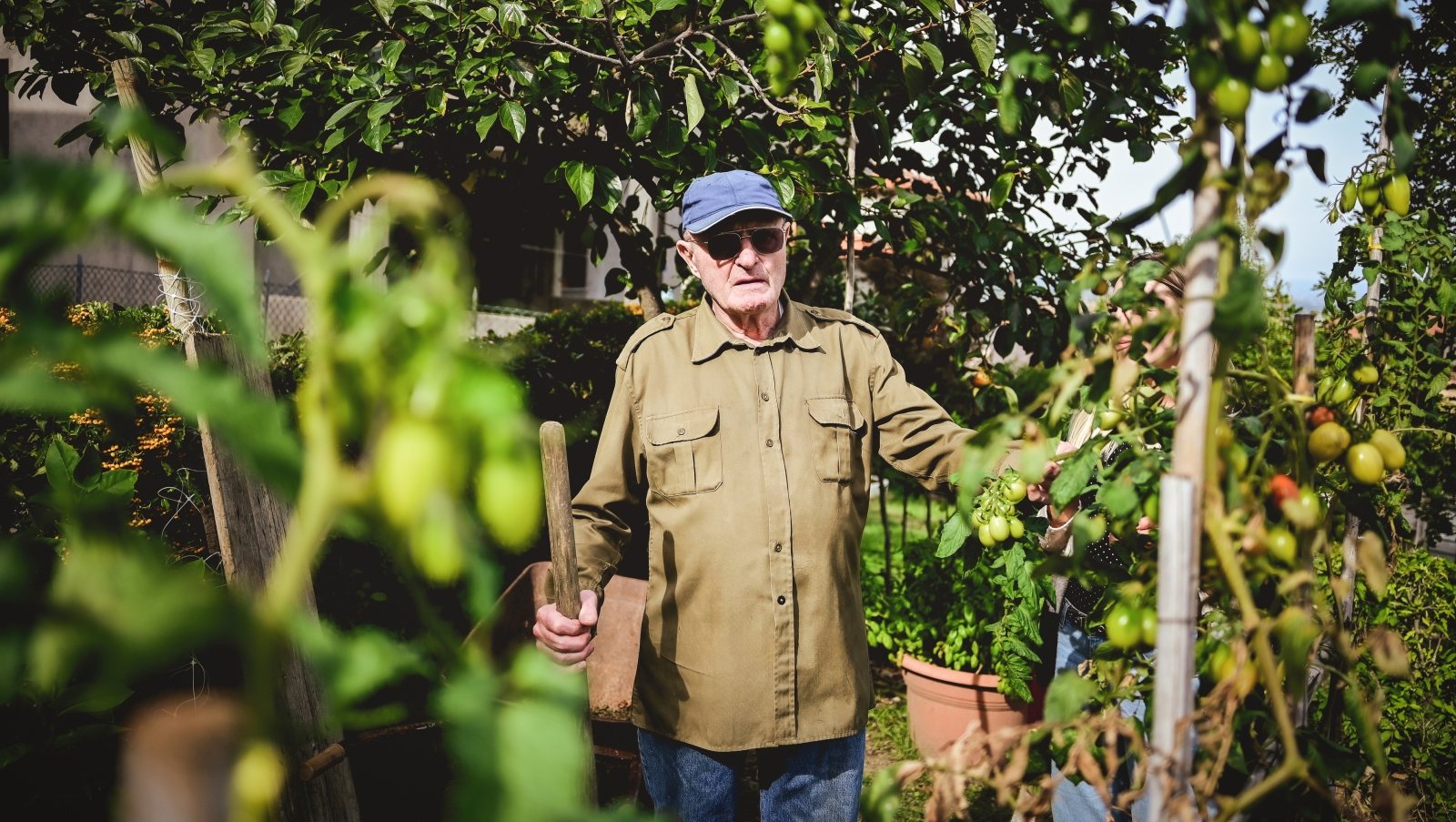The importance of Allotments
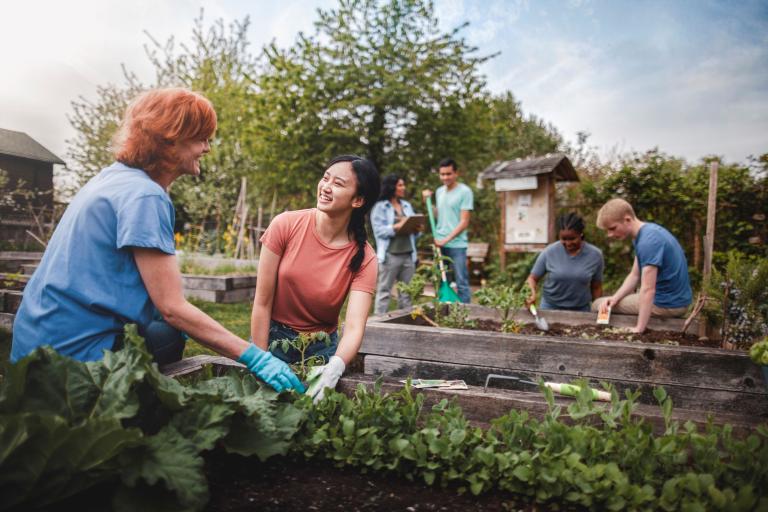
All About Allotments
Allotments are a boon to many, but especially to those not fortunate enough to have a garden of their own. Allotments provide a place to grow fruit, vegetables and plants and a provide a place to enjoy nature, enriching our lives in so many ways.
National Allotment Week is from the 12th to the 18th August this year and celebrates how allotments can benefit our health, wellbeing and the planet! The theme for 2024 will be Celebrating Biodiversity on UK Allotments.
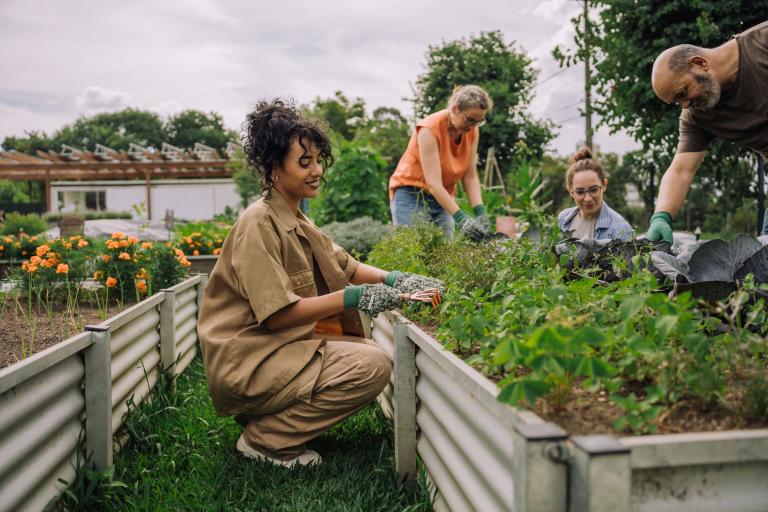
Allotments are small plots of land that are rented out to people by a local council, private associations or societies for gardening. They are for growing fruits and vegetables or even keeping livestock.
The necessity for allotments increased during the First and Second World Wars when there was a shortage of imported food due to blockades. Since then, many have transformed their gardens to grow produce rather than a lawn or flora; just like their grandparents/great grandparents may have done during the conflicts of the last century.
Allotments have not only provided people with a space to garden, but have also created green spaces in urban areas benefitting the environment. Allotments can provide habitats for wildlife, improve people’s mental and physical health and have brought communities together.
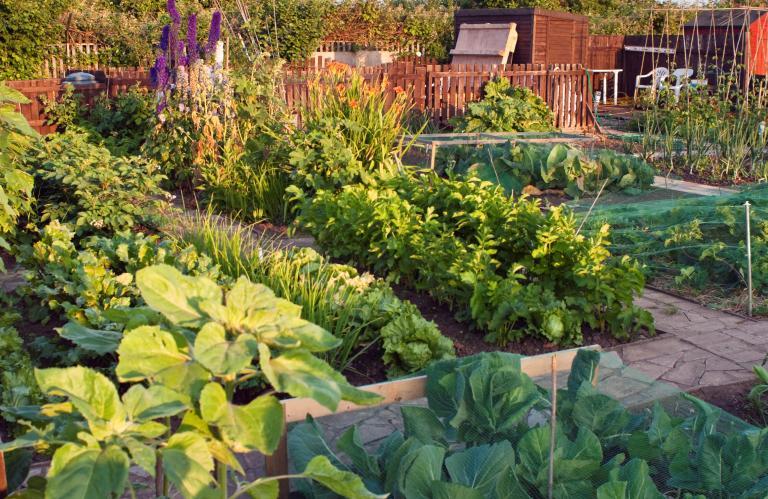
We at Blue Diamond understand only too well how important it is for communities to have open, green spaces to grow produce and enjoy nature. Our Silver-Gilt medal, Children's & People's choice award-winning 'Octavia Hill Garden’ at the RHS Chelsea Flower Show this year is testimony to that.
When Blue Diamond heard about how an allotment in Harlow was vandalised, we wanted to help to restore it. You can read about this here along with the many other ways in which we have helped local communities create outside, green spaces for all to enjoy.
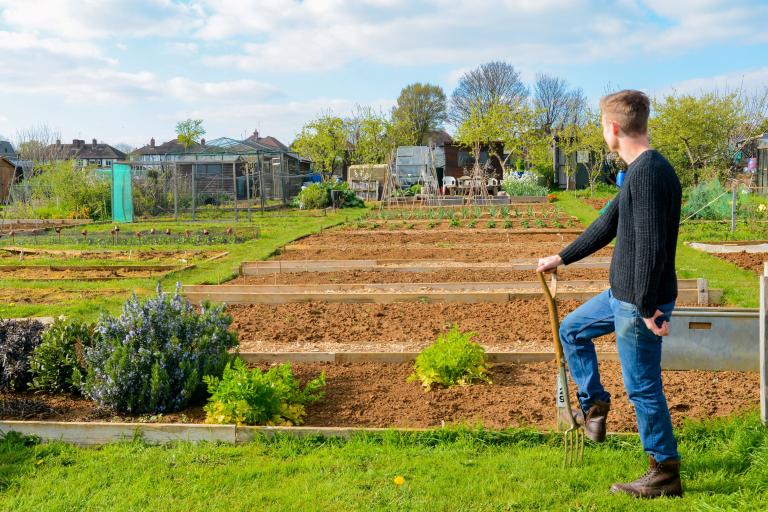
Wellbeing
Outside green spaces such as allotments, are so beneficial to our wellbeing, body and mind.
Gardening can be very physical and this in turn provides the gardener with a healthy work-out each time the tend to their patch – who needs the gym! It is a scientific fact that exercise releases ‘feel-good’ chemicals such as endorphins into our brain, boosting our self-esteem and helping us to concentrate. This can also improve our sleep and helps us to feel generally better.
Being in the fresh air and experiencing the changing of the weather and seasons first hand, can lead to an inner peace and create those all-important mindful moments.
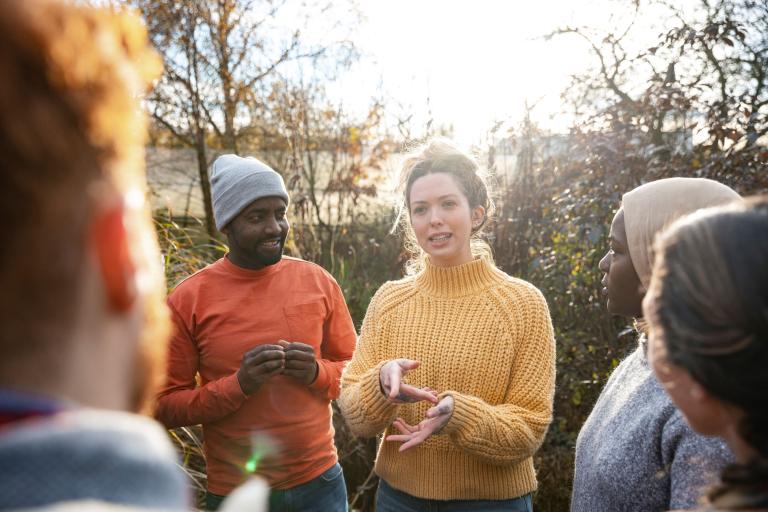
Spending time with people who have shared interests and making new friends can be so beneficial. Studies have shown that being part of a community can ease loneliness and can support mental health. Often, in the allotment world, you will find that gardeners enjoy a social life sharing best practice, looking after neighbouring patches in the owner’s absence and generally enjoying each other’s company. An allotment, as opposed to closed off, private gardens, is more open plan and encourages interaction between gardeners.
Growing our food is not only rewarding but it can also be cost effective and save us money – another way to give us peace of mind.
For further reading about gardening for Wellbeing, click here to find out how gardening can impact positively on our lives.
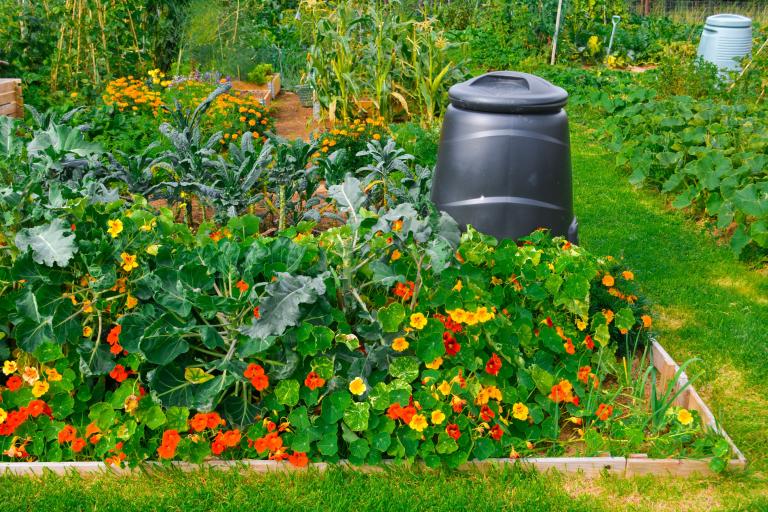
Nature Friendly Gardening
Green spaces within urban surroundings are essential for the benefit of the climate, environment and nature. Allotments, gardens, parks and green verges provide the ‘corridors’ in which wildlife can move safely from one area to the next. The planting of trees and shrubs can help to reduce high temperatures by providing shade and also improve the air quality reducing air pollution.
Why stop at just growing fruit and veg? Fill your allotment with beautiful flowers too. Not only will it look amazing but you will be supporting biodiversity and wildlife by attracting many varieties of pollinating insects.
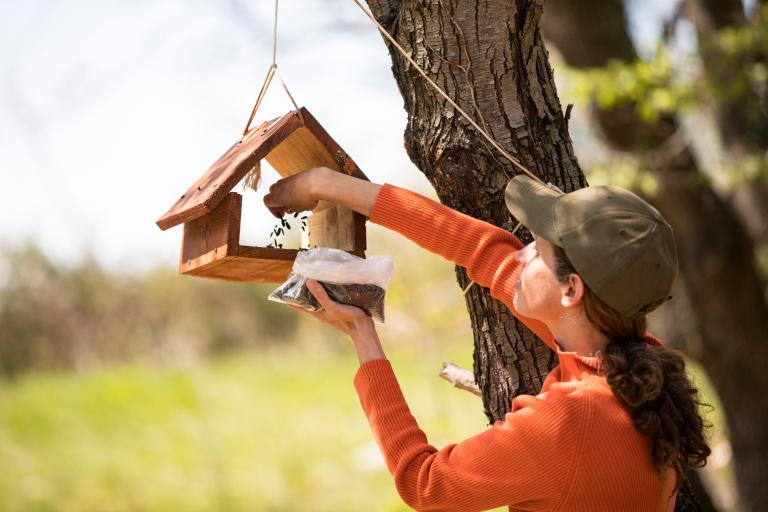
Bring the outside in and grow flowers for cutting such as Dahlias, Chrysanthemums, Gladioli, Cosmos Sunflowers and Tithonias. It’s a great idea to grow flowers as a ‘hedge’ between different varieties of veg (or amongst veg). This is known as companion planting and it has been found by doing this, plants are less prone to pest and disease.
Add bird feeders, bug hotels and hedgehog nesting boxes too to give as many creatures as possible the support they need. There’s nothing nicer than sitting back during your lunch break and observing the wildlife that visits your allotment.
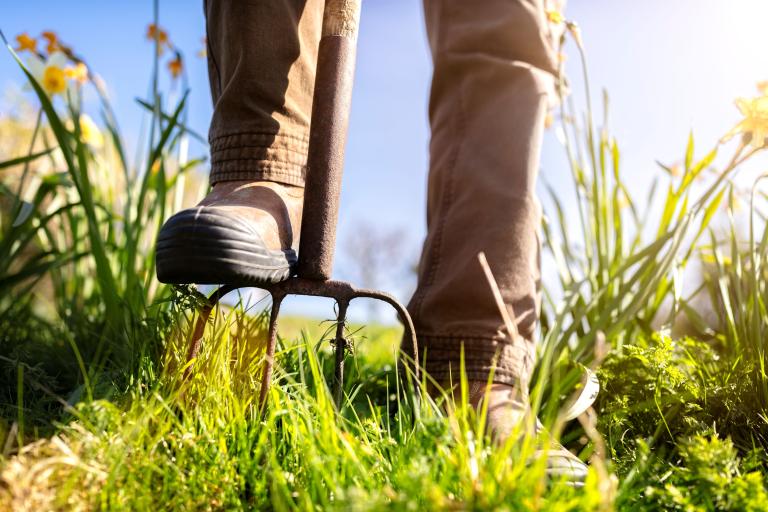
In a world with increasing urbanisation and pollution, it is reassuring to know that we can tend to our allotments, gardens and window boxes in a more considerate way. Our charity partner, the Soil Association have created a Nature Friendly Gardening Guide exclusively for Blue Diamond packed with hints and tips to help you make the switch and opt for greener, cleaner gardening methods. This year-round guide will show you how to create a safe haven for wildlife and reduce your impact on the environment throughout the seasons.
Available in store or online - £1 of each sale will be donated to the Soils Association – the charity that joins forces with nature for a better future.
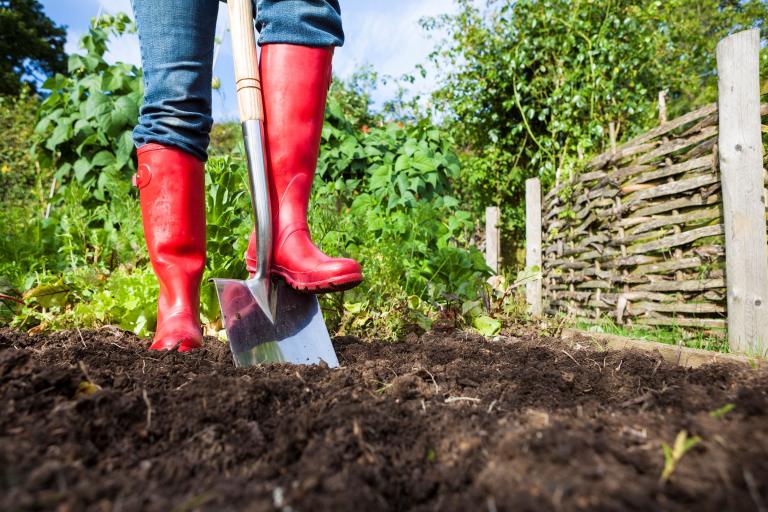
The Soil Association, are champions of National Allotment Week and their mission is to help everyone understand and explore the vital relationship between the health of soil, plants, animals, and people. Allotments help us to connect with nature, understand where food comes from and experience the magic of growing.
You can read the Soil Association allotment and home-growing guides below, which will hopefully help you create an organic and environmentally friendly space to grow in:
ALLOTMENTS AND HOME GROWING
THE BENEFITS OF ALLOTMENTS
There are many more ways in which we can assist our environment through gardening, and you can read about it here.
August jobs for your allotment or garden
The highlight for allotment gardeners in August is harvesting all the fresh vegetables, fruit and herbs you have so lovingly grown. This is a daily (and delicious) task as the case is often one for the basket and one for your tummy! A favourite is sweetcorn straight from the plant to the pan with a little butter - nothing tastes better!
Our in-house horticulture expert Chris Milborne, has put together some allotment tips for August:
- To create a structural feature in your allotment, you can train Apple and Pear Cordons, Espalier and step-overs. These look great on the edge of the allotment and can now be pruned enabling more sunlight onto the ripening fruit and creating better air circulation which helps prevent pests and disease.
- Cut down canes of summer fruiting raspberries once the fruit has finished, then tie in the new growth that will produce crops for next year. Always plant summer and autumn fruit in different areas of the allotment as the pruning regime is totally different. For the autumn fruiting plants, cut back to ground level around February time.
- Watch out for irregular watering with tomatoes as this can lead to blossom end rot. Remove the growing tips of tomato plants as this will encourage the existing fruit to swell and ripen. Any further flowers and fruit won’t ripen now before the autumn, as the crop is about 3 to 4 weeks behind. For a full and bountiful harvest, keep pinching out any side shoots and remove some of the lower leaves.
- Pinch out any growing tips of runner beans too as this encourages bushier growth below. You can also pick regularly to maintain the crop into September.
- As summer veg go over fill the gaps with fast growing Chinese cabbage, rocket and Pak choi.
- With this year’s wet weather lots of goodness has been leached from the soil so it’s a good idea sow some green manure in any spare ground. Many of these are fast growing and can either be cut down or dug into the soil in autumn. Alternatively, you can use an overwintering variety for next spring, adding nutrients to the soil and helping to suppress weed growth.
- Sow Lettuce seeds - a hardy plant when grown under cloches, cold frames or a greenhouse. This will provide a crop right into winter.
- Sow parsley for winter use and pot up chives and mint to grow on a bright window ledge or a frost-free greenhouse. These are great for adding to the fresh potatoes you have grown for Christmas dinner!
- Tidy strawberry plants, pot up rooted strawberry runners or create a new strawberry area. Think about making a new soft fruit area as this is always expensive to buy for just a small punnet.
- August is a perfect time to look at what’s grown well and plan for next year.
- Keep hoeing and weeding and check watering.
At Blue Diamond Garden Centres have everything you’ll need in store to design and develop your allotment, garden, or containers. From sheds, tools, sundries to plants and seeds – we have it all.
